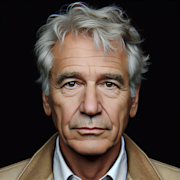The Political Impact of Classic Films: Speaking Truth to Power

Classic films hold a significant place in the world of entertainment, captivating audiences with their timeless storytelling and masterful craftsmanship. However, beyond their artistic value, these films have often served as vehicles to convey powerful political messages. With their ability to illuminate societal issues and challenge the status quo, classic films have undeniably made a lasting impact on politics. In this blog post, we explore how classic films have spoken truth to power, shaping our political discourse and inspiring change.
1. Sparks of Revolution: Inspiring Societal Change
Classic films have time and again ignited social revolutions by putting a spotlight on pressing societal issues that were often ignored or brushed under the rug. Take, for instance, the groundbreaking film “Metropolis” (1927), directed by Fritz Lang. This dystopian masterpiece visually narrates the harsh exploitation of the working class by the ruling elite, prompting discussions on class struggle and social injustice.
Through storytelling techniques and evocative imagery, classic films provided a platform for citizens to engage in conversations about oppressive systems and social inequalities. By shedding light on these injustices, films like “Modern Times” (1936) by Charlie Chaplin and “To Kill a Mockingbird” (1962) directed by Robert Mulligan allowed audiences to question the established norms and advocate for change.
2. Challenging Political Ideologies: Unveiling the Truth
Classic films have frequently challenged prevailing political ideologies to expose their flaws and limitations. They have dared to hold a mirror to society, encouraging critical thinking and political engagement. Stanley Kubrick’s masterpiece “Dr. Strangelove” (1964) satirically explored the dangers of Cold War politics and nuclear arms race, prompting viewers to question the absurdity of these policies.
Moreover, films like “The Battle of Algiers” (1966), directed by Gillo Pontecorvo, used historical events to illuminate the often brutal consequences of colonization, inviting reflection on the broader implications of imperialistic ambitions. By confronting societies with uncomfortable truths, classic films have played a crucial role in reshaping political discourse and influencing public opinion.
3. Empowering Marginalized Voices: Embracing Diversity and Inclusion
From civil rights to gender equality, classic films have paved the way for marginalized voices to be heard, challenging societal norms and advocating for change. Classical Hollywood films like “Guess Who’s Coming to Dinner” (1967) broke ground by featuring an interracial relationship, challenging racial prejudices prevailing at the time.
Similarly, Marlon Brando’s iconic performance in “A Streetcar Named Desire” (1951) shed light on domestic violence and mental health, bringing attention to issues that were often swept under the carpet. These films not only provided representation and visibility to marginalized communities but also sparked important conversations, resulting in gradual societal transformation.
4. Shaping Political Consciousness: Fuelling Activism
Classic films have consistently fueled political consciousness and inspired collective action by portraying the power of individuals to effect change. The 1939 film “Mr. Smith Goes to Washington” directed by Frank Capra portrays one man’s fight against corruption, highlighting the importance of grassroots activism and holding elected officials accountable.
Similarly, “Gandhi” (1982), directed by Richard Attenborough, captures the spirit of nonviolent protest and civil disobedience, amplifying the voice of Mahatma Gandhi and his fight for Indian independence. By showcasing the triumphs of ordinary individuals, classic films have instilled hope and mobilized audiences to follow in the footsteps of those who challenged the status quo.
5. Immortalizing Political History: Preserving Collective Memory
Classic films have also played a vital role in preserving and immortalizing crucial political moments in history, ensuring that they are not forgotten. Films such as “All the President’s Men” (1976) and “Frost/Nixon” (2008) dive into historical events, offering deeper insights into political scandals and the concept of accountability.
By capturing these moments on film, classic movies enable future generations to learn from the past and understand the context in which political decisions were made. They serve as a cautionary reminder, preventing history from repeating itself and fostering collective memory.
In conclusion, classic films have transcended their roles as entertainment to become agents of change, influencing political discourse and societal values. By inspiring revolutions, challenging ideologies, amplifying marginalized voices, fueling activism, and preserving political history, these films have left an indelible mark on our understanding of politics. As we continue to celebrate and appreciate classic films, we must recognize the power they possess to speak truth to power and shape a better world.

Desmond van der Walt
Journalist
More From Classics Authority Movies

Movie
Anatomy of a Murder (1959)

Movie
Memento (2000)

Movie
Spotlight on Orson Welles: Maverick Filmmaker and Renaissance Man

Movie
2001: A Space Odyssey (1968)

Movie
From Cinéma Vérité to Classic Fiction: The Evolution of Film Realism

Movie
The Enduring Enigma of Classic Movie Endings





